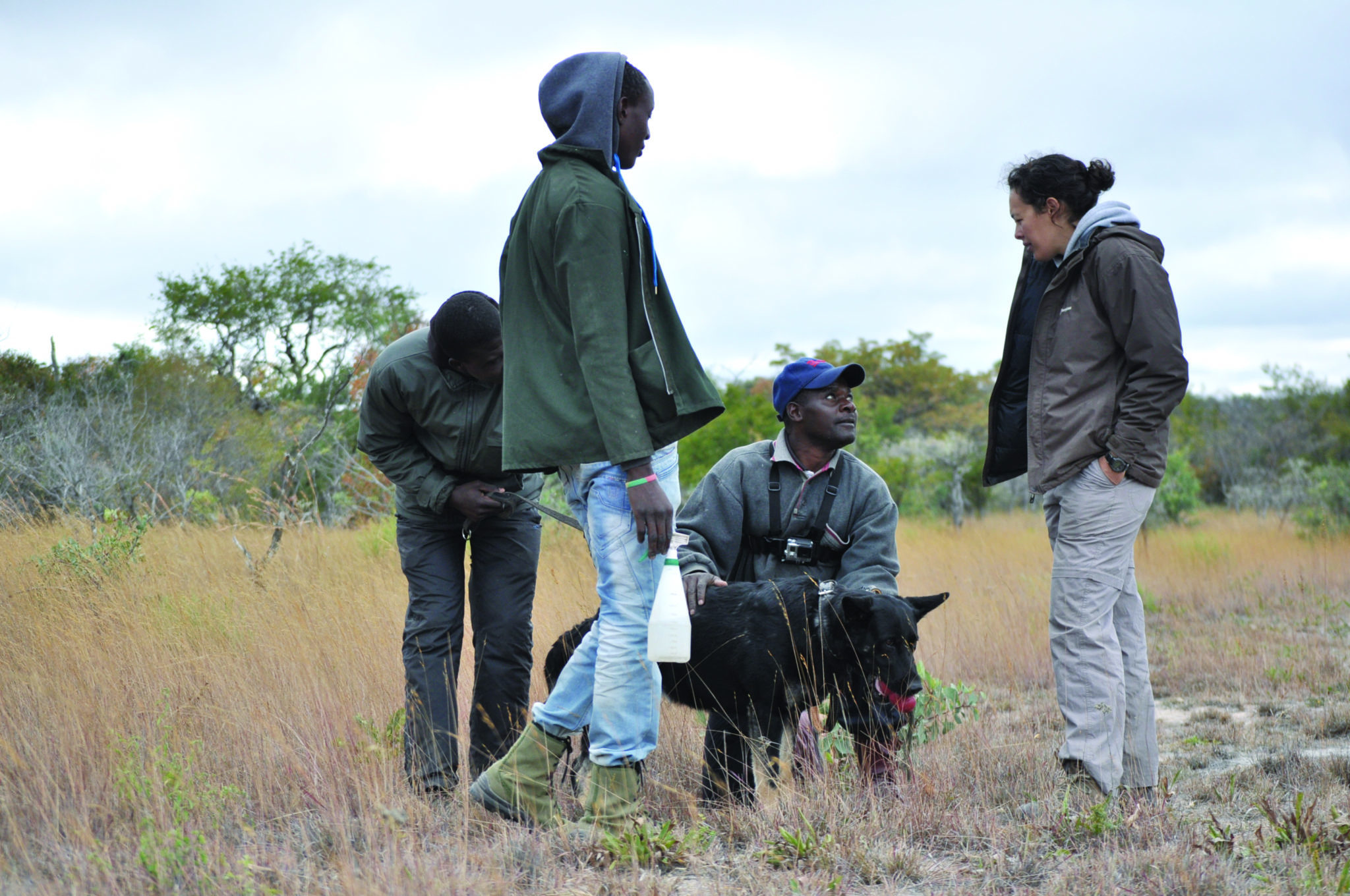There is blood on the office floor and from a corner, comes a whimper.
“Sorry,” says Zimbabwe-born Jessica Folkertsen as she dabs tissue paper onto the hind leg of a fierce-looking dog to contain the bleeding.
“He was bitten and is leaking a little,” she says clinically.
Anyone else in her position might have panicked but not Folkertsen. She knew Ninjo, her Belgian Malinois who was born in Sarajevo and had done duty as an IED (improvised explosive device) tracker in Afghanistan, was tough enough to handle the injury.
But this was something he had brought upon himself.
Loading...
Ninjo was ambushed by a feisty German Shepherd named Feya, who was on leave from her day job tracking rhino poachers and had only wanted to play.
Ninjo was not quite as keen and when he refused to give Feya what she wanted, things turned nasty. Folkertsen understands all this because she is the boss. And no, this is not an alternate universe where humans have turned pets into hired help.
Folkertsen is one of the founders of the Save Our Legacy (SOUL) Trust based in the Matopos, about 35 kilometers south of Bulawayo in Zimbabwe. The organization is involved in wildlife conservation with a focus on saving the rhino. That’s why the dogs.
The German Shepherds, who Folkertsen describe as “very intelligent dogs who love working”, are trained to work alongside human trackers to find poachers, ideally before, but sometimes even after they have committed their crime.

With Feya
The idea is that dogs can find scent in grass or granite rock, a feature peculiar to this area. They operate as a team and Folkertsen bands them together.
She spent eight years in the United Kingdom (UK) working with dogs and learning to train them for tracking. Ninjo was her partner. Although she did important work training military dogs, the longer Folkertsen was away from home, the more she wanted to return.
“I started becoming a keyboard warrior. I was on Facebook getting unhappy with how things were going in Zimbabwe and that people didn’t seem to be doing anything. Then I thought instead of complaining, go home and do it,” says Folkertsen.
Even though going home meant going back to a country with a stagnating economy steeped in political instability, Folkerstsen decided it was time for her and Ninjo to make the move.
“I looked at the pros and cons of the UK and of Zimbabwe and realized I wanted to deal with the cons of Africa and Zimbabwe as opposed to the cons of a first world country.”
She had a passion for animals but needed funding and people to help fight the cause and then thought of the dog-tracking idea.
She approached the Bubye Valley Conservancy in Matabeleland in Zimbabwe, who had received a sum of money from an American hunter who wanted to help, and agreed to let her use the cash to buy the first three dogs, all from Holland.
Then, Folkertsen teamed up with Barney O’Hara and Kyle Good, a couple with more than 40 years of experience in wildlife between them and who run a guest farm in the Matopos. They offered her use of some of their land to build kennels and coach dogs. And then, she had to find handlers.
Folkertsen put out a call to locals, to whom she offered training and employment. She received several responses. Through a careful selection process, she chose four young men, all under 25, and spent three months upskilling them and overseeing their bonding with the dogs who would become their Ninjos.
“The relationship between a handler and a dog is vital,” Folkertsen says. “The dogs have got to want to work for you so the stronger that relationship is, the harder the dog is likely to work.”
In early July, their education was complete and pairs went out on their first mission at Bubye. They spend three weeks in the conservancy followed by a week off.
When Feya found herself in a sticky situation with Ninjo, she was off that week. The pair made up soon after and Faye has since returned to work. She has not caught any poachers yet but Folkersten is sure she will, or even better, her presence and that of her dogs, will deter them.
“Just the threat of the dogs being there is a help,” says Folkertsen.
While SOUL takes its first steps, Folkertsen is already thinking of expanding. She hopes to have tracker dogs all over Zimbabwe and eventually even move into detection.
“We could train dogs to find rhino horn, ivory, drugs or explosives and if people wanted protection dogs, we could do that,” she says.
No doubt all of them will come across Ninjo and some of them may even become his special friend.
Loading...
